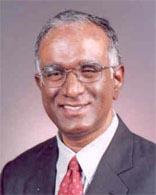A Lifelong Compact – Looking forward and looking ahead
 How many people would you know who would have a strong passion for union activities at a young age, like at the age of 20! Thomas Thomas is one of those rare individuals. Having left school in 1971, after completing his A-levels and all of 18 years of age then, Thomas began his involvement in union activities 2 years later. As a Union representative he became involved in numerous committees and by 1978 was even a Union Secretary.
How many people would you know who would have a strong passion for union activities at a young age, like at the age of 20! Thomas Thomas is one of those rare individuals. Having left school in 1971, after completing his A-levels and all of 18 years of age then, Thomas began his involvement in union activities 2 years later. As a Union representative he became involved in numerous committees and by 1978 was even a Union Secretary.
There was no looking back after that. The passion to serve workers fuelled his deeper involvement and by 1982 he became President of the Union. To his credit, he became an unionist in the NTUC Central Committee from 1989 to 2007 as well as Vice-President of CASE from the 1980s to 2006. Along the way he upgraded himself with a Diploma in Industrial Relations and a Master of Arts in Industrial Relations from Warwick University in the UK. Today, he remains a member of the Chartered Institute of Personnel & Development (U.K.) as a Chartered Fellow.
While Vice-President of CASE, he undertook several projects that had strong aspects of corporate social responsibility (CSR). As Thomas had to look into these matters from the consumers’ viewpoint, he realized that CSR is of multi-stakeholder interest. He had also been one of the instrumental members in the formation of a National Tripartite Initiative on CSR in 2004 to look into the CSR movement in Singapore. These early experiences and building blocks in CSR roles are the paving stones to Thomas’s current position in Singapore Compact for CSR. In 2005 Singapore Compact was established as a result of all these initiatives to boost CSR awareness and understanding in Singapore. Thomas was seconded from the Shell and the Union to Singapore Compact in 2007.
Thomas reflects the time, effort and the lessons learnt along the way. He said that one has just to look at how widespread the impact of businesses has on the environment and society. However, the level of awareness of CSR in Singapore is still low. The way forward is to encourage more membership which now stands at 200 companies and to reach out to youths, for example those at tertiary institutes. Human Resources (HR) has also a big role to play in CSR.
Thomas opines that one of the functions of HR is to be an “employee champion” – the basis for this is staff has to be treated with dignity, respect and fairness. Thomas did not hesitate to advice that some organizations treat HR as a strong partner while many others consider HR as an administrative tool. However, he does also agree that the workplace in Singapore is evolving fast and the role of HR also changing to one that sees and actions itself as a strategic champion of the employee.
A responsible company will certainly attract talent – money or rewards is not the only motive that attracts talent eventually, for employees tend to stay longer and prefer to work for a company that exercises responsibility. Employees look for a quality workplace where their rights are recognized and respected – a place where communication and trust among the management and employees is fostered. Employees want the opportunity to develop and progress. Therefore companies that embrace CSR philosophies and procedures would recognize the need of employees to maintain a good work life balance and healthy lifestyle.
All this translates to doing not just good but better business for the company also. The market place would rule as evidently in an informed society or community, consumers expect to buy from responsible companies. In today’s world of speedy communications a bad name will spread fast and travel far. CSR can help improve the corporate brand, employee morale and productivity as well as operational efficiencies.
Globalization has helped bring standards and the expectations of the market place. There is a “War for Talent” out there and therefore it pays companies to practice CSR to attract people and make a positive difference to their working lives and society too. Therefore Thomas avidly believes that the future direction for HR is clear. From past roles of “hatchet man” to “handlers of procedures, policies and regulations”, HR has the important role of sitting with management and transmitting values into actionable policies for implementation.
By Vijay





